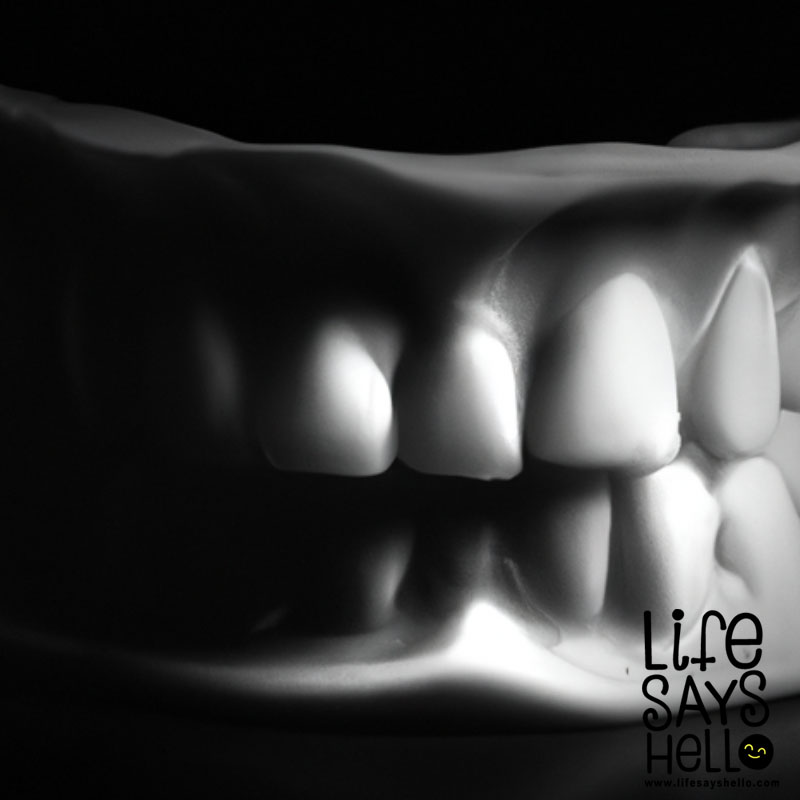Can Wisdom Teeth Cause TMJ? Unraveling the Mystery Behind the Connection

Have you ever wondered if your wisdom teeth could be the culprit behind your TMJ pain? In this article, we dive deep into the relationship between wisdom teeth and TMJ, shedding light on the connection and exploring treatment options.
Can Wisdom Teeth Cause TMJ? Exploring the Connection
Temporomandibular Joint Disorder (TMJ) and wisdom teeth issues are two common dental concerns that many people face. But have you ever considered that there might be a connection between the two? In this article, we'll explore the possible link between wisdom teeth and TMJ, and discuss what you can do if you suspect your wisdom teeth are causing or exacerbating your TMJ symptoms.
Understanding Wisdom Teeth
Wisdom teeth, also known as third molars, are the last set of teeth to emerge in our mouths, typically making their appearance between the ages of 17 and 25. While some people experience no issues with their wisdom teeth, many others face complications due to impaction, crowding, or infection. Let's take a closer look at these common wisdom teeth issues:
Impacted Wisdom Teeth
An impacted wisdom tooth is one that fails to emerge fully through the gum line, often due to a lack of space in the jaw. This can result in pain, swelling, and infection, as well as potential damage to neighboring teeth.
Crowding
When there isn't enough room in the jaw for wisdom teeth to grow in properly, they can push against adjacent teeth, causing crowding and misalignment. This can lead to discomfort and difficulty in maintaining proper oral hygiene.
Infection
Partially erupted wisdom teeth can create pockets where bacteria can accumulate, increasing the risk of infection and gum disease. This can cause pain, swelling, and even more serious complications if left untreated.
Understanding TMJ
Temporomandibular Joint Disorder, or TMJ, is a condition that affects the jaw joint and the muscles responsible for jaw movement. It can cause a range of symptoms, including:
- Pain or tenderness in the jaw, face, or neck
- Difficulty or discomfort while chewing
- Clicking or popping sounds when opening or closing the mouth
- Limited jaw movement or locking of the jaw
- Headaches or earaches
There are several factors that can contribute to the development of TMJ, including:
- Jaw injury or dislocation
- Arthritis in the jaw joint
- Habitual teeth grinding (bruxism) or clenching
- Malocclusion (misaligned bite)
The Connection Between Wisdom Teeth and TMJ
Now that we have a better understanding of wisdom teeth and TMJ, let's explore the possible connection between the two. While there is no definitive answer as to whether wisdom teeth can directly cause TMJ, there are some ways in which impacted or misaligned wisdom teeth can contribute to jaw pain and discomfort, which may, in turn, lead to or exacerbate TMJ symptoms.
Wisdom Teeth and Jaw Pain
Impacted wisdom teeth can cause pressure and pain in the jaw, as they push against neighboring teeth and bone. This discomfort can extend to the temporomandibular joint, potentially triggering or worsening TMJ symptoms.
Misaligned Wisdom Teeth and Bite Issues
When wisdom teeth grow in at an angle or become crowded, they can cause changes in the bite, leading to malocclusion. A misaligned bite can place undue stress on the jaw joint and muscles, increasing the risk of developing TMJ.
Research and Expert Opinions
While some dental professionals believe that there may be a connection between wisdom teeth and TMJ, research on the subject is limited and inconclusive. Some studies have found a correlation between the presence of wisdom teeth and TMJ symptoms, while others have found no significant association.
That being said, it's important to remember that each individual's situation is unique, and it's possible that wisdom teeth could play a role in causing or exacerbating TMJ symptoms for some people. If you're experiencing TMJ symptoms and have concerns about your wisdom teeth, it's essential to consult with a dental professional for a thorough evaluation and personalized advice.
Treatment Options for Wisdom Teeth-Related TMJ
If your dental professional determines that your wisdom teeth may be contributing to your TMJ symptoms, there are several treatment options available to help alleviate the issue.
Wisdom Teeth Extraction
One of the most common treatments for wisdom teeth-related issues is extraction. Removing the problematic wisdom teeth can help to relieve pressure and pain in the jaw, and may also improve TMJ symptoms in some cases. The extraction process typically involves a minor surgical procedure, performed by an oral surgeon or dentist.
Orthodontic Treatment
In cases where wisdom teeth have caused crowding or bite misalignment, orthodontic treatment may be recommended to correct the issue and potentially alleviate TMJ symptoms. This can involve the use of braces, clear aligners, or other orthodontic appliances to gradually shift teeth into their proper positions.
Bite Adjustment
For some individuals, a dental professional may recommend a bite adjustment to help alleviate TMJ symptoms related to wisdom teeth issues. This can involve reshaping the biting surfaces of the teeth to improve the way they fit together, reducing stress on the jaw joint and muscles.
Prevention and Management of TMJ Symptoms
In addition to addressing any wisdom teeth-related issues, there are several strategies you can employ to help prevent and manage TMJ symptoms:
- Maintain good oral hygiene to reduce the risk of infection and gum disease
- Avoid excessive gum chewing or biting on hard objects, which can strain the jaw muscles
- Practice relaxation techniques to help reduce stress and tension in the jaw muscles
- Perform gentle jaw exercises to help strengthen and stretch the muscles
- Use a mouthguard or splint, as recommended by a dental professional, to help protect the teeth and jaw from the effects of teeth grinding or clenching
Conclusion
While the connection between wisdom teeth and TMJ is not entirely clear, it's important to be aware of the potential link and seek professional advice if you're experiencing TMJ symptoms and have concerns about your wisdom teeth. By addressing any wisdom teeth-related issues and employing strategies to prevent and manage TMJ symptoms, you can work towards improving your oral health and overall well-being.




Comments